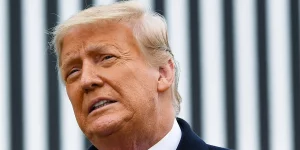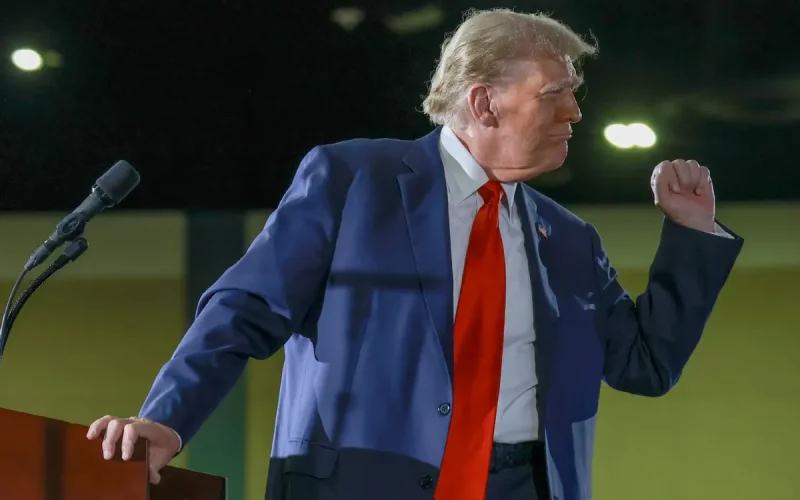In recent years, the political landscape of the United States has been significantly influenced by the rise of populist movements. Among these, the pro-Trump faction has been particularly notable, garnering substantial support from various socioeconomic groups, including the affluent elite, or plutocrats. This article explores the motivations behind the support of pro-Trump plutocrats, the consequences of their actions, and the broader implications for American democracy. Additionally, we will present an analysis table summarizing key points and a comparative table to juxtapose the policies favored by pro-Trump plutocrats against those endorsed by their opponents.
The Rise of Pro-Trump Plutocrats

The 2016 election of Donald Trump marked a seismic shift in American politics. Traditionally, the wealthy elite have aligned themselves with the Republican Party, supporting its platform of lower taxes and deregulation. However, Trump’s appeal was unique in that he managed to galvanize both the working class and a significant segment of the wealthy elite. This phenomenon can be attributed to several factors:
- Economic Self-Interest: Many plutocrats supported Trump due to his promises of tax cuts and deregulation. His administration’s policies significantly reduced corporate taxes and rolled back numerous regulations, resulting in substantial financial gains for the wealthy.
- Ideological Alignment: Some members of the affluent class genuinely resonated with Trump’s nationalist and protectionist rhetoric. They believed that his America First policies would bolster the domestic economy, benefiting their business interests.
- Political Influence: By supporting Trump, plutocrats hoped to gain greater influence over policy decisions. Trump’s administration was notably accessible to wealthy donors, allowing them to shape legislation to their advantage.
The Consequences of Plutocratic Support
While the initial motivations of pro-Trump plutocrats may have been rooted in economic gain and political influence, the long-term consequences of their support have been far-reaching and often detrimental:
- Economic Inequality: The tax cuts and deregulation championed by the Trump administration disproportionately benefited the wealthy, exacerbating economic inequality. This growing disparity has led to social unrest and a sense of disenfranchisement among the lower and middle classes.
- Erosion of Democratic Norms: The support of plutocrats for Trump’s often controversial and autocratic tendencies has undermined democratic norms. Their influence has contributed to a political environment where rule of law and institutional checks and balances are frequently challenged.
- Polarization and Division: The alliance between Trump and the plutocrats has deepened political polarization. By championing policies that favor the elite, they have alienated large segments of the population, fostering an environment of division and mistrust.
The Broader Implications for American Democracy
The intersection of wealth and politics is not a new phenomenon in American history. However, the pro-Trump plutocrats represent a particularly stark example of how economic power can shape political outcomes. This dynamic poses several challenges to the health and stability of American democracy:
- Corruption and Cronyism: The close ties between Trump and his wealthy supporters have raised concerns about corruption and cronyism. The prioritization of plutocratic interests over public welfare undermines trust in government institutions.
- Threats to Social Cohesion: The policies favored by pro-Trump plutocrats often exacerbate social divisions. For example, efforts to dismantle social safety nets and cut funding for public services disproportionately harm vulnerable populations, leading to increased social tension.
- Long-Term Economic Stability: While short-term gains from tax cuts and deregulation may benefit the wealthy, they can have adverse long-term effects on the economy. Reduced government revenue and increased inequality can lead to economic instability and hinder sustainable growth.
Analysis Table
| Key Point | Explanation |
|---|---|
| Economic Self-Interest | Plutocrats supported Trump for tax cuts and deregulation, leading to financial gains. |
| Ideological Alignment | Trump’s nationalist rhetoric appealed to some wealthy individuals. |
| Political Influence | Wealthy donors sought greater influence over policy decisions. |
| Economic Inequality | Policies disproportionately benefited the wealthy, exacerbating inequality. |
| Erosion of Democratic Norms | Support for autocratic tendencies undermined rule of law and institutional checks. |
| Polarization and Division | Policies favoring the elite deepened political polarization and alienated large population segments. |
| Corruption and Cronyism | Close ties between Trump and plutocrats raised concerns about corruption. |
| Threats to Social Cohesion | Policies harming vulnerable populations led to increased social tension. |
| Long-Term Economic Stability | Short-term gains from tax cuts and deregulation could lead to long-term economic instability and hinder sustainable growth. |
Comparative Table
| Policy Area | Pro-Trump Plutocrats’ Stance | Opponents’ Stance |
|---|---|---|
| Taxation | Support for significant tax cuts for corporations and the wealthy | Advocating for progressive taxation to address income inequality |
| Regulation | Push for extensive deregulation | Emphasis on regulation to protect consumers and the environment |
| Healthcare | Reduction in government involvement in healthcare | Expansion of public healthcare options |
| Social Safety Nets | Reduction in funding for social programs | Strengthening social safety nets to support vulnerable populations |
| Trade Policy | Favoring protectionist trade policies | Support for free trade and globalization |
| Climate Change | Downplaying the importance of climate change | Advocacy for strong climate action and environmental protection |
| Immigration | Support for restrictive immigration policies | Favoring comprehensive immigration reform and inclusion |
Conclusion
The folly of the pro-Trump plutocrats lies in their short-sighted pursuit of economic gain and political influence at the expense of broader societal well-being. While their support for Trump may have yielded immediate benefits, the long-term consequences have been detrimental to American democracy. The increased economic inequality, erosion of democratic norms, and deepened political polarization are all byproducts of this alliance. Moving forward, it is crucial to address the influence of wealth in politics and strive for policies that promote social cohesion, economic stability, and the health of democratic institutions.












